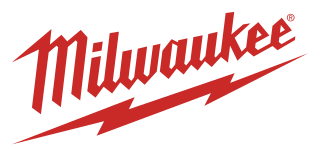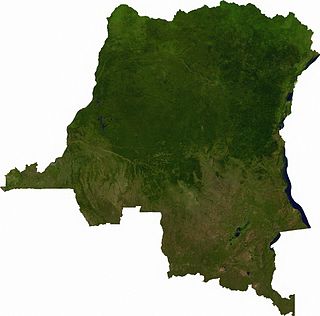| Look up kango in Wiktionary, the free dictionary. |
Kango is a town in the Estuaire Province of Gabon.
Kango may also refer to:
- Kango people, Mbuty Pygmy people of the Ituri Rainforest, eastern Democratic Republic of the Congo
- Kango language, Bantu language spoken by some of the Kango people
- Kango language (Bas-Uélé District), Bantu language spoken in Bas-Uele District, northern Democratic Republic of the Congo
- Sino-Japanese vocabulary, also called by its Japanese name kango (漢語)
- Slang term for jackhammer
- A brand of jackhammer made by the Milwaukee Electric Tool Corporation

The Milwaukee Electric Tool Corporation was founded in 1924. It manufactures power tools for professional use.
The Kango (Bakango), also known as the Batchua and Mbuti-Sua, are an Mbuti pygmy people of the Ituri forest. They speak a Bantu language, Bila, apparently in two dialects, northern Sua and southern Kango.
Kango is a Bantu language spoken in the Bas-Uele District of the Democratic Republic of the Congo. It may be a cover term for various dialects spoken by fishermen in the area.
Sino-Japanese vocabulary or kango refers to that portion of the Japanese vocabulary that originated in Chinese or has been created from elements borrowed from Chinese. Some grammatical structures and sentence patterns can also be identified as Sino-Japanese. Sino-Japanese vocabulary is referred to in Japanese as kango (漢語), meaning 'Chinese words'. Kango is one of three broad categories into which the Japanese vocabulary is divided. The others are native Japanese vocabulary and borrowings from other, mainly Western languages (gairaigo). It is estimated that approximately 60% of the words contained in a modern Japanese dictionary are kango, but they comprise only about 18% of words used in speech.
People with the name Kango include:
- Mayuri Kango (born 1982), Indian actress from Aurangabad
- Naaba Kango (fl. 1754–1787), ruler of the Mossi state of Yatenga in present-day Burkina Faso; see List of rulers of the Mossi state of Yatenga
Mayuri Kango is a former Indian actress from Aurangabad, India. She has acted in a number of films, primarily in Bollywood. As of April 4, 2019, she has joined Google India company as the Industry Head.
Naaba Kango was a ruler of Yatenga. After the death of his brother, Naaba Piiyo, Kango became ruler in 1754. He was soon forced into exile by Naaba Wobgo. He returned in 1757, with a firearms-based army. He founded the new capital at Ouahigouya in 1780.






